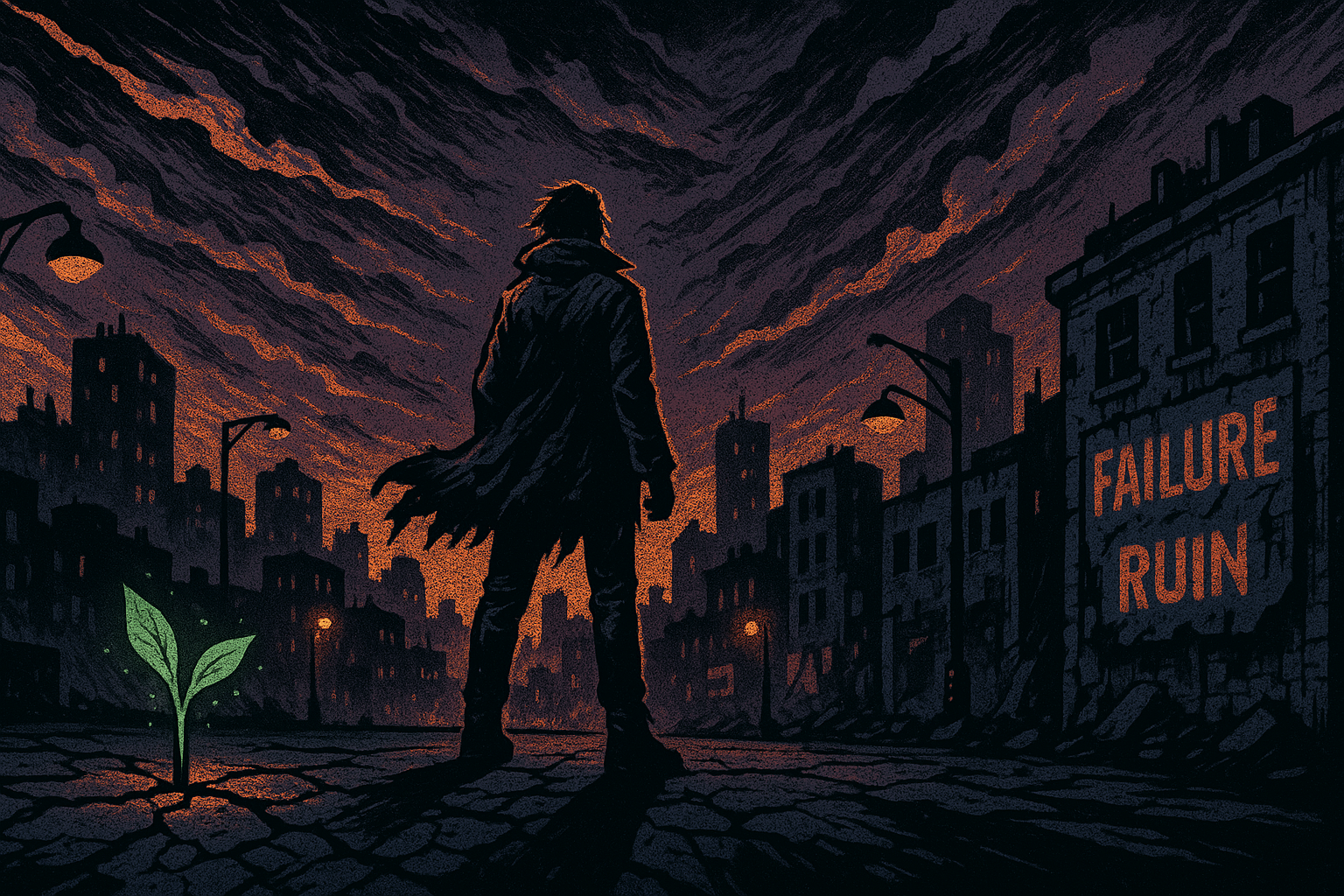Decades ago, I used to marvel at my Corporate America middle-managers and supervisors and executive directors who’d all stacked their office shelves with more books than they’d ever get to in a year, let alone a career. Still, I recall being blown away by the knowledge they’d must have amassed from reading everything on display, until I realized those books were mostly wallpaper and props and set dressing. One manager confided that he’d never read anything on the shelf behind him, which amounted to about 40 or 50 titles like Good to Great and True North and Competing for the Future, not to mention an endless assortment of books about leadership principles, usually written by retired soldiers. This is the kind of nonsense I’d pull in active alcoholism: everything was for show. I’d buy three Thomas Pynchon behemoths and prominently put them on my shelf—never to read them. I just wanted them there.
Anyway, in sobriety, I told myself that I wasn’t going to create a library of works I’d never read; I didn’t want my shelves filled with spines I’d never crack open. Every month here at Genius Recovery, I’ll share titles here that I’ve come across that say something meaningful about recovery. That said, these aren’t just books I’m collecting for the sake of collecting them—these are books that will likely travel with me for the journey of my sobriety. They’ve not only kept my interest but they’ve reminded me that sometimes when I’m lost in my recovery, I can often find myself again while reading pages like these.
Sonata: A Memoir of Pain and the Piano, Andrea Avery (Pegasus Books, 2017): Andrea Avery, an already ambitious and talented pianist by the age of 12, becomes diagnosed with severe rheumatoid arthritis (RA)—a diagnosis that’s nothing short of a death knell for her aspirations in both music and life. Staring down a bleak life Avery never imagined for herself, she instead turned her creativity to crafting the gorgeously delicate Sonata: a memoir that’s as powerful and affecting as any musical composition within her. The book has been described as “breathtaking” and “dazzling” (among other adjectives), but these words aren’t standard editorial-review hyperbole. Avery’s memoir is a poetic masterwork in how to translate darkness into light. She charts a course for readers to discover the nature of pain, the fallacy of fate, the struggle for motivation, what “success” truly means, and finding one’s place in a life that’s seemingly abandoned you.
Two Towns Over, Darren C. Demaree (Trio House Press, 2018): Don’t let its slight size fool you: this award-winning collection of delicate yet sharp poems is bursting with observations about the blighted streets and neighborhoods of Demaree’s opioid-ravaged Ohio. He doesn’t understand the addiction that’s taken hold of everything he’s always known, but that’s the point: it’s a series of poems constantly trying to make sense of something that’s almost infinitely out of reach. You don’t have to appreciate poetry to understand the gorgeous rot and ugly accuracy at the center of Two Towns Over.
Bottoms Up: A Recovery, Paul C. (Hotchkiss Publishing, 2016): While the chapter structure of Bottoms Up should be familiar to anyone who’s been to a 12-step meeting (“What it Was Like,” “What Happened” and “What it’s Like Now”), the memoir is anything but some color-by-numbers triptych about sobriety. It’s a unique, lively and (at its best) adventurous plunge into alcoholism—and the long, torturous road back. The writer paints such a vivid, detailed portrait of his disease that it’s hard not to breathe a little easier, feeling the white-knuckle release when he sits down in AA for the first time.
The vignettes are as brief as they are affecting: one- to two-page glimpses into a beautifully chaotic world, one glimpse colliding headlong into the next. A whirlwind that takes the reader from 1950s New York City, on booze-soaked vacations to Cape Cod, following a dizzying trail of months-old apologies and—finally—gussying up his alcoholism by actually becoming a respected sommelier…all before he arrives in AA. The impetus? He writes, “My wife presented me with a three-page handwritten list (by no means a complete one) highlighting some of the things I had done and failed to do in my drinking career and how she felt about them.” It’s that sort of stark black-and-white reality check that undercuts an otherwise crazy-colorful, sometimes queasy kaleidoscope of full-blown alcoholism.
Bottoms Up doesn’t romanticize AA so much as it spins dark poetry out of the writer’s experiences in the rooms. He’s not quick to pick up all the lingo or bumper-sticker logic, nor does he willingly embrace everything that’s thrown his way. And in many ways, it’s his initial skepticism about AA, especially the fact that he wrestles with whether he’s even an alcoholic to begin with, that’s the most endearing part. Paul C. simply sticks to what’s worked for him and, thanks to the sharpness of his truths, when the words cut, they bleed. For all its self-deprecation and humor, Bottoms Up is also at times jarring and terrifying. It’s a messy portrait of first sponsors, first struggles and first steps, though by the time Paul C. finds left himself unsupervised in an art gallery, trusted to be alone with priceless paintings by the likes of Degas and Picasso, it isn’t just an important emotional milestone for his sobriety—he’s also reached a highwater mark with recovery writing.
Just in Time, Joan Jackson (She Writes Press, 2017): Jackson’s novel is a deeply affecting chronicle of mental illness that’s both inexplicably funny and heartbreakingly true. Jackson’s writing is all at once delicate, barbed and beautiful—a style that lends itself perfectly to the story of Steve, a former college track star struggling with schizophrenia in adulthood. And while it’s a work of fiction, Jackson has clearly tapped into the first-hand experience of growing up with her similarly afflicted brother. Interestingly, while the novel doesn’t particularly set out to be a meditation on parenthood and addiction, Just in Time unflinchingly captures the difficulty of raising a child struggling with substance abuse. Even Jackson seems surprised by including her son’s real-life struggles, let alone just how effective their inclusion ends up being. “I didn’t plan on putting it in this book,” she admits, noting that her mother felt the same “despair” toward Steve as Jackson did with her own son. “[Dealing with addiction] is a learning curve and many people don’t know what it’s like to live with it,” she says. “My son has been clean and sober for 18 years, which is a miracle.” Still, she’s comfortable plunging the reader right in the center of the struggle. As she calls it in the novel, the book details “a series of yets,” wherein there’s a calm before the inevitable insanity of detox. Also, that Jackson’s son is only a subplot is remarkable, given how indelible his problems are. It also shows just how effortlessly commanding her writing is.



